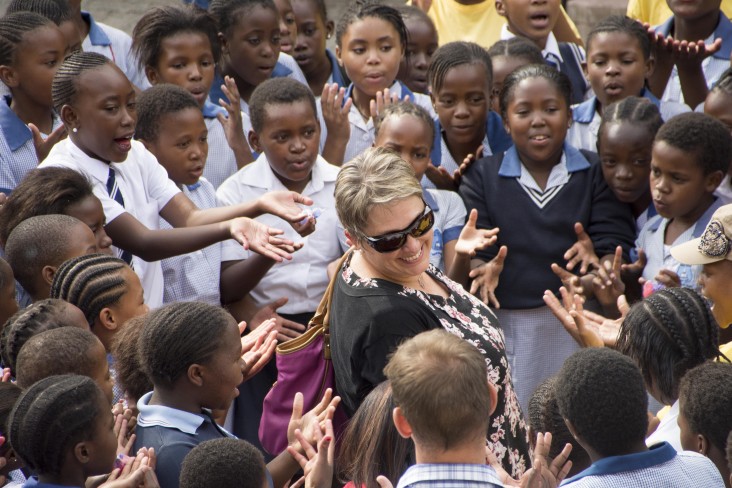
HEALTH
Southern Africa remains the region of the world most severely affected by HIV/AIDS. The burden of the epidemic in the region is staggering; in several Southern African countries more than a fifth of the adult population is infected with HIV/AIDS. USAID collaborates with regional and international organizations, such as UNAIDS, the South African Development Community (SADC), the international donor community, the U.S. President’s Emergency Plan for AIDS Relief (PEPFAR) and other U.S. government agencies to provide quality treatment and prevention; strengthen health systems; and provide relief and assistance to orphans and vulnerable children.
ECONOMIC GROWTH
Increased trade and open markets are the key components to economic growth and poverty reduction. USAID’s Southern Africa Trade and Investment Hub increases international competitiveness, intra-regional trade and food security in Southern Africa. The Trade Hub has introduced a range of modern trade facilitation tools including customs connectivity solutions, one-stop border posts, coordinated border management, trusted trader programs, and national single windows.
USAID’s regional activities support the Feed the Future Initiative, working through country-led plans, strategic coordination, result-based programs, and partnerships to enhance regional food security.
GOVERNING JUSTLY AND DEMOCRATICALLY
Multi-party democracy has more popular support in the region than any other form of governance. However, democratic values and practices remain shallowly rooted, and progress toward democratic consolidation is slow. USAID strengthens the legitimacy and capacity of key governmental institutions, and builds the capacity of civil society groups and regional organizations to advocate for the protection of human rights.
ENVIRONMENT
USAID supports programs that promote sustainable economic growth in targeted areas by integrating climate change into policy and decision making, and ensuring sound management of trans-boundary natural resources. USAID supports various congressional and executive priorities including protection of biodiversity and combating wildlife crime; advancing water supply and sanitation services; promoting strategic investments and partnerships, and; fostering collaborative, transboundary cooperation to reduce drivers of insecurity. USAID enhances resiliency of critical river basins in Southern Africa, currently working in the Okavango, Limpopo and Orange-Senqu River Basins.
USAID promotes the adoption of innovative, science-based solutions to support vibrant and ecologically sustainable development. This includes innovative research on renewable energy solutions, combating invasive aquatic species, and rehabilitating coral reefs.
HUMANITARIAN ASSISSTANCE
USAID’s Office of Foreign Disaster Assistance (OFDA) and Food for Peace (FFP) support development and emergency response programs in the region. OFDA supports bilateral missions that are facing disasters or crises (e.g. droughts, floods, cyclones), while Food for Peace provides food assistance to address food insecurity and combat malnutrition in children and mothers.
The current priority is responding to the El Niño-induced drought across southern Africa. Approximately 18.3 million people in acutely drought-affected areas will require emergency assistance between June 2016 and March 2017. Since FY 2015, USAID has provided more than $300 million to support drought response activities in Southern Africa.







Comment
Make a general inquiry or suggest an improvement.